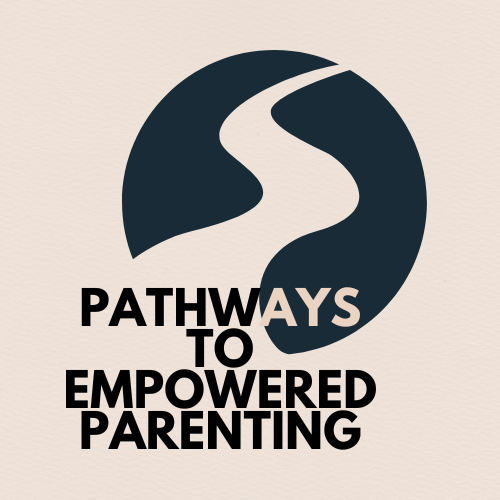
Parenting is hard. We are not meant to do it alone.
About Timothy Connely LMFT, M.A. Ed., MA-ABA, MSpsych
Timothy Connely holds a Bachelor of Arts in Education and a Master of Education in Behavioral Analysis, both from Gonzaga University. With nearly a decade of experience as a special education teacher working with middle school students, Timothy brings a deep understanding of developmental and behavioral needs into his current work in psychology.
After returning to his hometown, Timothy began pursuing a degree in psychology, continuing a lifelong commitment to learning and service. Along the way, he and his wife welcomed three children into their family—a life-changing experience that deeply informs his therapeutic approach. As a parent, Timothy brings a compassionate, grounded, and often humbling perspective to every therapeutic relationship.
Outside of work, Timothy enjoys hiking, spending time with his family, coaching soccer, listening to podcasts, and cheering on Gonzaga basketball. He would be honored to support your family on your parenting journey.
FAQs
*
FAQs *
-
Parenting should be a team sport and not just with your partner. Our ancestors parented in villages and small tight communities. The modern parent is asked to be a full time employee, Mom or Dad, and it can be taxing on family systems.
In my private practice I often wish that parents could talk to each other to prevent the terrible loneliness that can occur when we or our kids are struggling.
Lastly, this might be a supplement to 1:1 therapy or marital therapy, but a space to focus on parenting.
-
Parenting is a journey that takes time, reflection, and practice—and so does building new skills. Committing to four to six sessions allows you the space to try out new strategies, receive feedback, and refine your approach over time. Change doesn’t happen overnight, and consistency is key to making lasting progress.
These sessions also give you the opportunity to connect with other parents who are navigating similar challenges. As the group develops, so does a sense of community and trust, which can be just as valuable as the tools you’ll learn. By showing up regularly, you’re not only investing in your own growth—you’re helping to create a supportive environment where everyone benefits.
-
Confidentiality is a foundational part of creating a safe and respectful group environment. At the start of the group, all members agree to a confidentiality policy, which means that personal information, stories, or experiences shared in the group should not be discussed outside of it.
While facilitators are bound by professional ethics and legal standards to protect your privacy, it's also essential that every group member commits to upholding this trust. We take time during the first session to discuss what confidentiality means, why it matters, and how we all play a role in maintaining it.
Though no group setting can offer absolute confidentiality, we work hard to foster a culture of respect, safety, and mutual responsibility—so everyone can feel comfortable sharing and growing together.
-
Parenting classes or groups typically focus on teaching specific skills, strategies, or information—like how to set boundaries, manage behavior, or support emotional development. They tend to be more structured and educational in nature, with less focus on personal emotional processing.
Group therapy, on the other hand, includes those educational elements but also creates space for deeper emotional work. In group therapy, parents can explore their own experiences, reflect on how their upbringing influences their parenting, and receive support not just from the facilitator, but from other group members who truly understand the challenges.
In short: parenting classes teach what to do, while group therapy helps explore the why—within a supportive, therapeutic environment designed for meaningful growth.
**Don’t worry you’ll get plenty of what to dos too. **
-
We understand that attending as a parenting team—whether that’s both parents, co-parents, or other caregivers—can be challenging. Childcare, work schedules, and financial constraints are real, and we never want those barriers to prevent participation.
That said, we do encourage both parents or anyone actively involved in raising the child to attend when possible. When caregivers learn and grow together, it strengthens consistency at home, improves communication, and creates a shared understanding of the strategies and support being offered.
Whether you're attending solo or as a team, you'll be welcomed fully. But if there's a way for both parents or co-parents to join, even for just a few sessions, it can be a powerful investment in your child’s well-being—and your parenting relationship.
-
11545 Los Osos Valley Rd. Suite C2 San Luis Obispo Ca 93401
You will need to look at the schedule to find the group therapy that suits the age of your child or children?
-
Group therapy may be eligible for insurance reimbursement, but coverage varies depending on your individual plan. We’re happy to provide you with a superbill—a detailed receipt you can submit to your insurance provider for potential out-of-network reimbursement. We always recommend checking with your insurance company to understand what your plan covers for group therapy services.
One of the benefits of group therapy is that it’s often more economical than individual therapy, making it a great option for families who want consistent support while being mindful of cost. You get access to therapeutic tools, guided support, and shared wisdom from other parents—all at a lower rate than one-on-one sessions.
In some cases, parents find that group therapy meets many of their needs, while others discover that combining group and individual therapy—even for a short time—provides the most meaningful support. We’re here to help you figure out what works best for your unique situation.
-
It’s completely normal to feel uncertain or even uncomfortable with certain group members—after all, group therapy brings together people with different personalities, perspectives, and communication styles. These dynamics can sometimes bring up strong feelings, but they’re also a valuable part of the therapeutic process.
In group therapy, these moments are handled with care. They can actually offer powerful opportunities for self-reflection, growth, and learning new ways to communicate or set boundaries. The group facilitator is trained to support respectful, open dialogue and to create a space where everyone feels heard and safe.
That said, if something feels unmanageable or disruptive, we encourage you to bring it up—either in the group or privately with the facilitator. Your comfort and emotional safety are important, and we're here to support you through those challenges, not ignore them.



